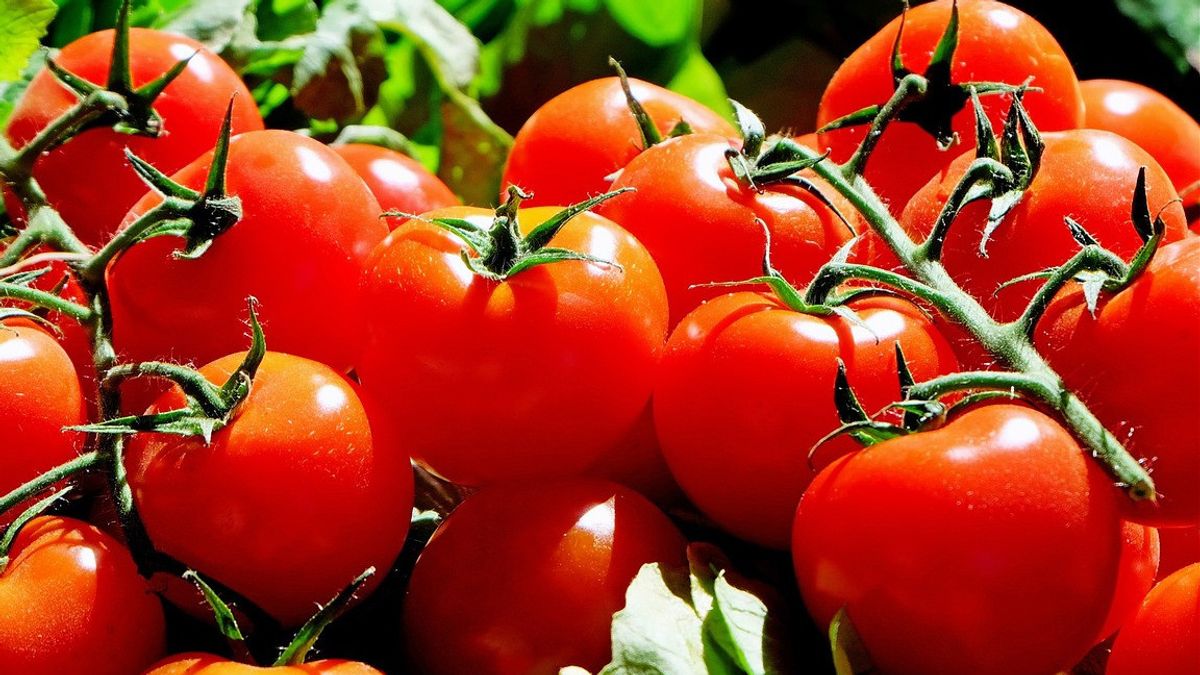JAKARTA - Gene-edited foods such as tomatoes and mushrooms are then enriched with vitamin D to stay fresh longer and never turn brown. This fruit or food will soon be available in the market.
The British government this week announced plans to allow 'Frankenfoods' to be sold off-label in UK supermarkets. But this has sparked protests from some consumers who claim they 'must be given a choice'.
Ministers have introduced a new Genetic Technology (Precision Breeding) Bill to Parliament, which would create a new category for gene-edited organisms (GE), so that they can be regulated separately from genetically modified organisms (GM).
The law will accelerate the development and commercialization of DNA-altered crops and livestock, although the government says it is taking a step-by-step approach by establishing rules for crops first.
GE foods are produced using the CRISPR gene editing tool, which makes precise edits to existing plant or animal DNA.
Unlike genetically modified foods, gene-edited foods do not contain 'foreign' DNA from other species.
Scientists use special proteins to make small changes to an organism's DNA that can occur naturally or through selective culturing.
Food editing can be done for the benefit of consumers, for example by increasing the amount of certain vitamins and nutrients in fruit.
It can also be made to simplify the farming process, such as making crops or livestock immune to deadly diseases.
The UK's Secretary of the Environment, George Eustice, insisted that GE's products should not be advertised as such because they were 'basically natural'.
However, Scotland and Wales have both pledged to resist the move, and Britain's biggest supermarket has so far refused to confirm whether they will have the food on their shelves.
With the new law under way, the Daily Mail takes a closer look at some of the GE foods that may be on supermarket shelves in the UK as early as next year.
Tomatoes Fortified with Vitamin D
Tomatoes have been genetically engineered to produce more vitamin D, to help reduce the worldwide shortage of this vitamin troop.
Researchers from the John Innes Center in Norwich used CRISPR to edit a gene involved in converting provitamin D3 into cholesterol.
They claim that the vitamin D you can get from eating one of these genetically modified tomatoes is equivalent to two eggs or 28 grams of tuna.
Therefore, the 'super' fruit can help meet the daily needs of children and adults for vitamin D3, as well as reduce the risk of developing diseases such as cancer, Parkinson's disease and dementia.
Mushrooms That Don't Turn Brown
A variety of white button mushrooms that have been genetically edited to not brown when sliced have been approved by regulators in the US.
Dr. Yinong Yang of Penn State University used CRISPR to remove a tiny part of a gene that causes brown fungus in Agaricus bisporus.
The resulting mold lasts longer on supermarket shelves and doesn't need to be handled with the same care as regular strains, thus reducing food waste.
Dr. Which is currently working on improving the fungus, and hopes to commercialize new varieties in the future.
Bread that Reduces Cancer Risk from Toast
British scientists have also edited the wheat genome to reduce the production of cancer-causing chemicals that form when burned.
Acrylamide is a carcinogen created when bread is toasted and is more common when toast darkens.
Researchers from Rothamsted Research and the University of Bristol have now succeeded in stopping the function of a gene involved in the production of asparagine in wheat, which turns into acrylamide when heated.
In August last year, the group got the green light from DEFRA to run a series of field trials that will end in 2026, with the first harvest currently in the field.
Some of the results of these studies are believed to be immediately applied to these types of plants and fruits and are expected to appear on the market this year. However this will be possible if UK legislation supports the implementation of gene editing of foods for widespread approval and production.
The English, Chinese, Japanese, Arabic, and French versions are automatically generated by the AI. So there may still be inaccuracies in translating, please always see Indonesian as our main language. (system supported by DigitalSiber.id)













